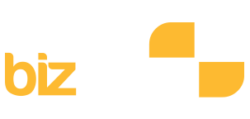90% of small business failures are caused by poor cash flow. Pam Madytianos from MYOB talks about how cloud accounting can help. ~WizeOwl
–
You can run a profitable business, but unless you have cash flow under control the odds are against you.
According to Dun and Bradstreet, 90 percent of small business failures are caused by poor cash flow management.
Want to make sure you’re not just another statistic? Here are seven tips to set you on the course for improved cash flow.
1. Invest in a reputable online accounting package
With a reputable online accounting software package, you’ll be on your way to better manage your cash flow from the outset.
You’ll have a handle on your accounting information and will can make more informed decisions around your finances.
MYOB online accounting will provide just that.
You’ll be able to automate your invoicing to your clients and set the payment terms that suit your business.
You can even see when you clients receive, open and pay their invoices. You can email regular statements as reminders as well.
As a result, you’ll spend less time on debtor management and get paid faster.
2. Debtor management with the use of apps
Once you have your accounting package in tow you can better manage your business debtors and cashflow with additional apps such as MYOB OnTheGo or MYOB PayDirect.
These products take it all one step further with the convenience of mobile invoicing and contact management that syncs with your accounting software.
These apps allow instant creation of an invoice on a phone or a tablet, even when the user is out on the road.
They can also process credit card or EFTPOS payments on the spot while your accounting software is automatically updated to save you time.
3. Creditor management
On the other side of the equation, businesses should manage the timing of payments of creditors too.
If you’re paying your suppliers too quickly while clients drag out paying your invoices, then you will put your business under cash flow pressure.
4. Prepare a cash flow forecast
A cash flow forecast is a deeper dive into your business’s incoming and outgoing funds over a particular time frame.
It will help you plan for those looming bills and other planned expenditure and plan for the timing of the outflows so that don’t overspend when cash is tight, and you stay in business.
For example, a lot of businesses will go out and buy a company car when they’re flush with cash – without taking into account coming lean times.
Cash flow forecasts show the cash fluctuations caused by such actions.
5. Create a budget
Budgets are such an important part of running a successful business.
They’re the road map for your finances.
Budgets are an estimate of how your business will perform in the coming year.
It’s so easy to quickly lose control of your finances without a budget, and they set you on the path of achieving your goals by helping you make smarter decisions around your finances.
At times, you may need to adjust your budget as your business changes as an unexpected bill creeps in.
Budgets can be made easy with the use of your MYOB AccountRight and Essentials.
They’re very easy to setup, use and manage. They also allow you to compare past years and compare actuals too.
By monitoring your cash flow and reviewing your budgets regularly, you should be able to identify any issues early and making plans to avoid any tough times.
6. Maintain stock levels
Cash is consumed if a business buys too much stock – so by keeping the right amount of stock on the shelves, cash is released to be used in other areas.
It’s better to buy frequently and less, to keep the cash in the business.
There are many add-ons that will help your business to maintain the optimal levels and avoid over ordering.
7. Go add-on crazy
Speaking of add-ons, there are a raft of add-ons available to complement accounting software such as MYOB.
These add-ons can automate the way you run your business so that you have more time to make sales.
Products such as EzyCollect (debtor management tool) and Calxa (cash flow and budgeting tool) you are armed with all that is required to keep you on top of it all and run your business more efficiently.
–
Want to learn more about how cloud accounting can help your business? Contact Bizwize today!



